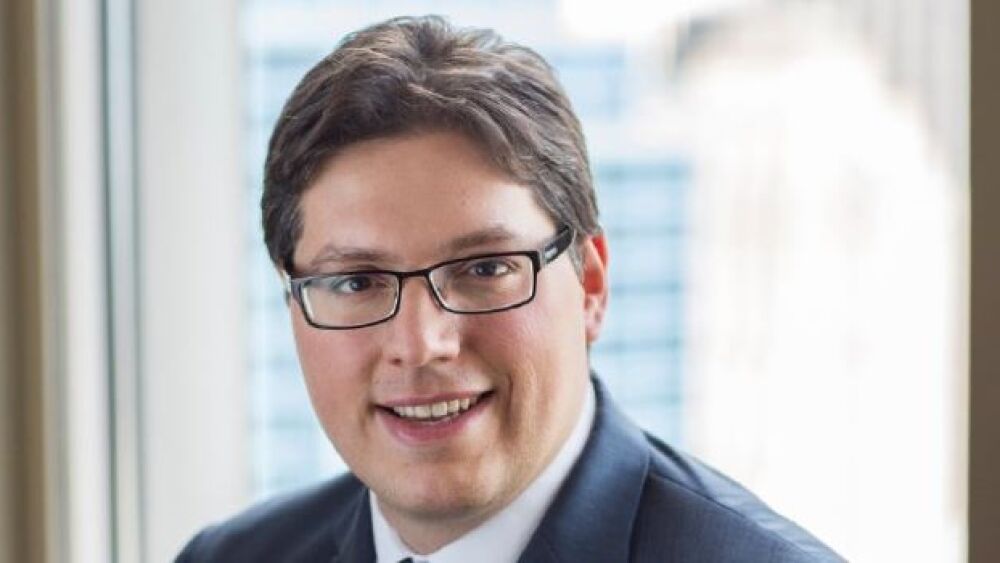Belgium-based Celyad Oncology voluntarily paused a clinical trial with Merck after two deaths. Getting CAR T therapies to work in solid tumors has proven to be a difficult challenge.
Celyad CEO Filippo Petti/Courtesy lecho.be
On Feb. 28, Belgium-based Celyad Oncology voluntarily paused a clinical trial with Merck after two patients’ deaths. The U.S. Food and Drug Administration has now made it official, placing a clinical hold on the companies’ Phase Ib CYAD-101-002 (KEYNOTE-B79) clinical trial. Celyad notes that the hold is “due to insufficient information to assess risk to study subjects.”
The study evaluates Celyad’s CYAD-101, dosed simultaneously with FOLFOX chemotherapy, followed by Merck’s anti-PD-1 checkpoint inhibitor Keytruda (pembrolizumab). It is being tested in refractory metastatic colorectal cancer. CYAD-101 is a TCR Inhibitor Molecule (TIM)-based allogeneic NKG2D CAR T therapy.
The company had paused after the deaths of two patients with similar pulmonary symptoms.
At the time, Filippo Petti, Celyad’s CEO, said, “Our primary commitment is to maintain patient safety, which is why we decided to place the trial on hold while we investigate these events.”
There had been no dose-limiting toxicities in twenty-five patients previously treated with the drug in the Phase I alloSHRINK study. The company said it didn’t expect the pause to impact their shRNA-based candidates, including CYAD-211, which is being studied for multiple myeloma.
Ceylad was founded in 2007 in Belgium and has offices in the U.S. It focuses on developing off-the-shelf and personalized CAR T cell therapeutics for hematological and solid tumors.
Another facet of its approach is short hairpin RNA (shRNA), part of its proprietary non-gene edited technology platform. On Dec. 8, 2021, the company reported a private placement with Fortress Investment Group worth $32.5 million. Celyad issued 6.5 million ordinary shares for $5.00 (U.S.) per share. The funds will be used to advance its pipeline, pay for research and development, including CYAD-101 and CYAD-211, its allogeneic CAR T candidates, and its shRNA technology.
Aside from Ceylad, there have been several clinical holds on CAR T studies in the year. In October 2021, South San Francisco-based Allogene Therapeutics reported the FDA had placed a hold on its AlloCAR T clinical studies after a report of a chromosomal abnormality in ALLO-501A CAR T cells in the ALPHA2 trial. In January 2022, the FDA lifted the clinical hold on their trials, concluding the chromosomal abnormality was not related to TALEN gene editing or Allogene’s manufacturing process.
Tmunity Therapeutics halted the development of its CAR T therapeutic in June 2021 after two patients in the trial died from immune effector cell-associated neurotoxicity syndrome (ICANS). The trial was in solid tumors. ICANS is a known severe side effect associated with CAR T therapies.
CAR T therapies, where immune cells are taken from the cancer patient, genetically engineered to target the patient’s specific cancer, then infused back into the patient, becoming a sort of “living therapeutic,” are very effective in hematological cancers. However, in those types of cancers, CAR T is associated with cytokine release syndrome, also called “cytokine storms.” ICANS is similar but involves a different kind of immune cell, specifically macrophages. Getting CAR T therapies to work in solid tumors has proven to be a difficult challenge.





